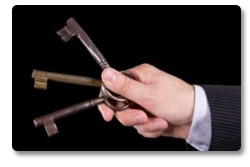By: Coleman Jackson, Attorney | Immigration & Tax Law Firm | www.cjacksonlaw.com
Apr 14, 2014
What is Estate Planning?
 Estate planning is the field of discipline in preparation for yourself and your loved ones future. Ideal estate planning happens when you protect your assets, pass your legacy, and manage your tax liability. Estate planning is way more than drafting a set of documents. Proper estate planning is more than documents! Estate planning is not merely about passing your assets and values at the time of death; but, also managing and controlling your assets during your life time. Estate planning can include life time gift planning, incapacity planning, digital asset planning, death planning and business structuring, winding down and exit strategy planning. Proper estate planning permits you to give your assets to who you want, when you want, and how you want.
Estate planning is the field of discipline in preparation for yourself and your loved ones future. Ideal estate planning happens when you protect your assets, pass your legacy, and manage your tax liability. Estate planning is way more than drafting a set of documents. Proper estate planning is more than documents! Estate planning is not merely about passing your assets and values at the time of death; but, also managing and controlling your assets during your life time. Estate planning can include life time gift planning, incapacity planning, digital asset planning, death planning and business structuring, winding down and exit strategy planning. Proper estate planning permits you to give your assets to who you want, when you want, and how you want.
A variety of tools can be used in estate planning. Generally, multiple combinations of these tools are used in any single estate plan depending upon the goals and objectives of the planner. No two estate plans are exactly the same because goals, desires, values, and valuables are not the same from person to person; or even with the same person over time. Over time, situations and circumstances change. People grow. People learn. People expand. For example, people grow older; people get married; people have children; people change; people die; people start businesses; people grow businesses; and people wind-down and dispose of businesses. Life is in constant change; therefore, people’s estate plans must change too. That is why it is not about the documents or tools of estate planning. Estate planning is about capturing your goals, your values and your desires and adjusting the estate plan over time. What do have and who do you want to give it to and why? Who are these descendants, successors, hires, entities, charities- really? These kinds of questions are explored and answered during estate planning with an estate planning counselor. One tool in the tool box of an estate planning counselor is various kinds of trust. You can establish a trust that takes effect during your lifetime or upon your death. Trust can be revocable (ones that can be changed during your life time) or irrevocable. Trusts can be used to accomplish numerous estate planning goals.
What is a Trust?
 A trust is a legal arrangement that permits a third party known as a trustee, to hold assets (such as property) on behalf of a beneficiary or beneficiaries. Lawful trusts can be arranged in many ways and can specify exactly how and when the assets pass to the beneficiaries. A trust is typically composed of four main entities:
A trust is a legal arrangement that permits a third party known as a trustee, to hold assets (such as property) on behalf of a beneficiary or beneficiaries. Lawful trusts can be arranged in many ways and can specify exactly how and when the assets pass to the beneficiaries. A trust is typically composed of four main entities:
- Grantor: This is the person that sets up the trust.
- Trustee and Successor Trustee: This is the person or entity that will follow your wishes as per the trust document (manage your trust) during your life or upon your death.
- Property (Trust Assets): These are the items, money, physical properties, digital assets placed in the trust.
- Beneficiaries: These are the individuals or organizations that will benefit from your trust assets.
A trust is a set of instructions written by you during your life time. Trust can play a very important role in managing your life, your valuables, and your values during your life time; passing your assets on to your heirs upon your death, or in the event you are disabled, incapacitated or otherwise become incapable of managing your personal affairs. You get to write the rules that the trustee must abide by in administering the trust property. You can add specific restrictions on distributions, attainment of certain goals for beneficiaries to receive trust property, and payment and replacement of the trustee and successor trustees under certain conditions.
Benefits of Estate Planning Using Trust
Trust does not have to be probated; that means that they can remain private because courts are not involved in administering trusts. The terms and conditions governing the trust property can be kept confidential. A trust could be used to manage estate taxes. A well formed trust can offer many other benefits; some of them are listed below.
Tax Benefits:
 At the moment, the estate tax exemption is $5 million. That means if your estate upon your death is $5 million or less, your estate is exempt from U.S. estate taxation.
At the moment, the estate tax exemption is $5 million. That means if your estate upon your death is $5 million or less, your estate is exempt from U.S. estate taxation.
If you have an estate exceeding this exemption mark, then the assets in the trust will not be taxed until yours and your spouse’s death and will be applied when the assets passes to your children or hires.
Another benefit to setting up a trust is the generation skipping transfer tax. If you are passing any amount over $5 million to your grand children or more remote descendants then it would be taxed unless it is in a trust.
A Way to Protect Your Children:
 The estate plan should capture, promote and preserve your legacy to your loved ones and community. Trust is useful if you want to protect your child who is incompetent, incapacitated, or irresponsible in some way. If (s)he is underage, or struggling growing up; or growing up slower than normal, and you don’t want to leave the assets to them outright in their present condition, then you can set up a trust that only allows distribution if the child reach certain predetermined thresholds that are determined by you in your instructions to your trustee. Similar types of limiting instructions could possibly be written when the beneficiaries are charities or other entities.
The estate plan should capture, promote and preserve your legacy to your loved ones and community. Trust is useful if you want to protect your child who is incompetent, incapacitated, or irresponsible in some way. If (s)he is underage, or struggling growing up; or growing up slower than normal, and you don’t want to leave the assets to them outright in their present condition, then you can set up a trust that only allows distribution if the child reach certain predetermined thresholds that are determined by you in your instructions to your trustee. Similar types of limiting instructions could possibly be written when the beneficiaries are charities or other entities.
Trust can also be used for incapacitation planning. Unexpected accidents or illnesses could hit that make it impossible for you to manage yourself and your valuables. In the event these unfortunate events occur, a trust in place could help carry on your values and manage your affairs and carry out your wishes.
Control Your Wealth:
 In order to control your wealth you can specify the terms of a trust precisely, you can control when and to whom the distributions are to be made. You may also set up a revocable trust so that the trust assets remain accessible to you during your lifetime. You could serve as the revocable trust trustee.
In order to control your wealth you can specify the terms of a trust precisely, you can control when and to whom the distributions are to be made. You may also set up a revocable trust so that the trust assets remain accessible to you during your lifetime. You could serve as the revocable trust trustee.
Privacy and Probate Savings:
Probate is a matter of public record. It is a court proceeding; and your probate records might even be put online for the world to review. A trust may allow assets to pass outside of probate and remain private; administering a trust could be cheaper because it also reduces the amount lost to court fees and other costs and expenses that are typically incurred in the probate process.
This blog is written by the Immigration & Tax Law Firm of Coleman Jackson, P.C. It is for informational and educational purposes and does not create an attorney-client relationship between this law firm and the reader. If you have questions about your particular situation regarding Estate Planning, Business Structuring, Business Succession Planning or other asset protection matters, you should consult with independent tax counsel with respect to your individual situation, circumstances or concerns.
Coleman Jackson, PC
Immigration & Tax Law Firm
6060 North Central Expressway
Suite 443
Dallas, Texas 75206
Law Firm Site: www.cjacksonlaw.com
Main Line: 214-599-0431 ||| Spanish Line: 214-599-0432
